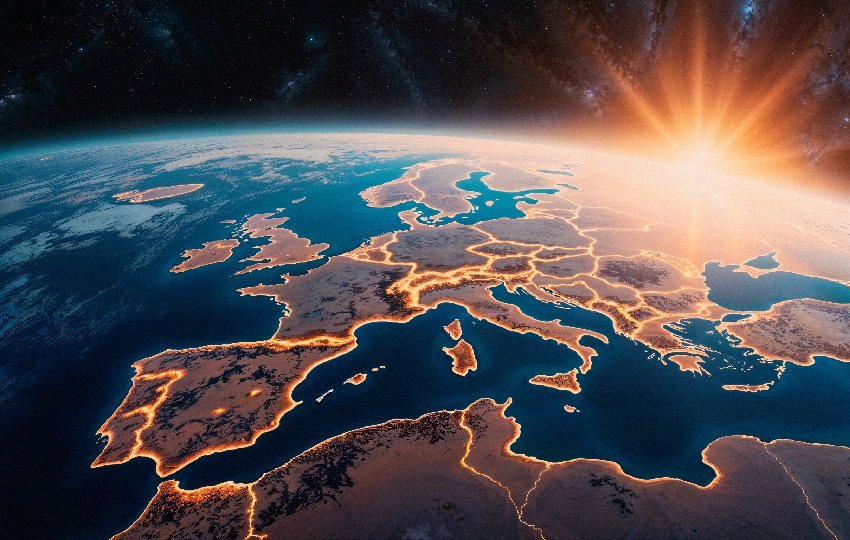The changes in European society, on a small or large scale, affect, life as we know it every single day. Digital innovations affect the European market as well as daily life. Education helps evolve current practices in all labor fields.
Of course, the issues that arise, ever so often, can be important obstacles to the road towards innovation. And for the EU these issues need to be dealt with in the most effective way possible.
Eu policies and actions that contribute to solving important societal problems are part of the 2030 Agenda towards achieving the Sustainable Development Goals. In the EU official website, you can find analytical information regarding the policies and all the activities that have taken and will take place until the end of the Agenda in 2030.
With this article, we will attempt to give you a preview of these actions and help you get a good view of what is to follow!
1. End poverty in all its forms everywhere
Within the EU, the Europe 2020 Strategy for growth and jobs aims to lift at least 20 million people out of poverty and social exclusion by 2020. Income support, access to services and inclusive labor market to combat poverty are covered by the European pillar of social rights. The EU Cohesion Policy foresees investments in social inclusion, job creation, regeneration of deprived urban and rural areas, modernization of public services and housing.
Across the globe, the EU acts through its European development policy whose primary objective is poverty eradication in the context of sustainable development. The EU's needs-based humanitarian aid covers areas such as food, shelter, healthcare, water, and sanitation in emergency situations. Closer to its borders, the EU relies on the European Neighbourhood Policy to improve the prospects for the local population and reduce poverty often at the root of instability.
2. End hunger, achieve food security and improved nutrition and promote sustainable agriculture
Within the EU, the Common Agricultural Policy and the Common Fisheries Policy help farmers and fishermen to meet the food demand of more than 500 million Europeans and provide stable, sustainably produced and high-quality food at affordable prices. Through coherent farm-to-table measures and adequate monitoring, the EU assures a high level of food safety within the EU.
Across the globe, European development policy supports, among other, agricultural growth in developing countries with a focus on small-scale farmers. In its neighborhood, the EU works on food security, sustainable agriculture and fisheries through the European Neighbourhood Policy and the Enlargement policy.
3. Ensure healthy lives and promote well-being for all at all ages
Within the EU, initiatives on health and the EU Cohesion Policy support and complement national governments in their efforts to improve and protect human health, to reduce inequalities in health status and promote social inclusion. The European pillar of social rights underlines the right of every individual to timely access to affordable, preventive and curative health care, long term care and good quality essential services. It also covers social protection, including healthcare and sickness benefits.
Across the globe, the EU acts through the European development policy, the European Neighbourhood Policy and the Enlargement policy to tackle challenges in third countries' health systems. EU action targets maternal and child mortality, infectious and non-communicable diseases, antimicrobial resistance, as well as access to sexual and reproductive health services. The European Medical Corps mobilizes medical and public health teams and equipment for sudden emergencies, inside and outside the EU.
4. Ensure inclusive and equitable quality education and promote lifelong learning opportunities for all
Within the EU, education policy supports national education and training systems. The Europe 2020 Strategy for growth and jobs includes an education target to reduce the rates of early school leaving below 10% and to ensure that at least 40% of 30-34 year-olds complete higher education.
The European pillar of social rights underlines everyone's right to quality and inclusive education, training and life-long learning, while the EU Cohesion Policy invests in people's skills and competences. For best practice exchange and support to policy reforms, the EU has set up the Strategic framework – Education and Training (ET 2020). Between 2014 and 2020, the Erasmus+ mobility program funds 4 million young students, trainees, apprentices, and volunteers.
Beyond its borders, the EU provides support to education in the framework of the European development policy, the European Neighbourhood Policy and the Enlargement policy. By 2020, Erasmus+funding in third countries will support the exchange of around 150,000 university students and staff, 1000 capacity building projects on higher education and 27,000 master degree scholarships across the world.
5. Achieving gender equality and empower all women and girls
Within the EU, gender equality has made steady progress over the last decades, through legislation and integration of the gender perspective into all other policies and specific measures. The Strategic Engagement for Gender Equality 2016-2019 sets out the Commission's ambitions for a higher share of women in the labor market and the lower gender gap in pay and pensions. This framework also seeks to promote equality between women and men in decision making and to combat gender-based violence while protecting and supporting victims.
Equal opportunities, including those between men and women, are also a central principle in the European pillar of social rights. The EU Cohesion Policy conditions access to structural and investment funds with gender equality promotion.
Beyond its borders, the EU acts through a set of actions and projects on gender equality, focusing on the physical integrity of girls and women; their economic, social rights and empowerment; as well as their voice and participation. The European development policy provides capacity building and knowledge sharing in developing countries. In emergency situations, humanitarian aid operations include projects on reproductive health and address sexual and gender-based violence.
6. Ensure availability and sustainable management of water and sanitation for all
Within the EU, the EU water policy addresses the protection of inland surface waters, transitional waters, coastal waters, and groundwater. It relies on legislation on drinking water, bathing water, and urban wastewater, as well as on the prevention of pollution caused by nitrates, industrial emissions, pesticides, and persistent organic pollutants. Water resources protection is as well addressed in the 7th Environment Action Programme of the EU environment policy until 2020.
Across the globe, the EU acts through assistance programmes or regional initiatives carried out in the framework of the European development policy, the European Neighbourhood Policy and the Enlargement policy. To people hit by man-made and natural disasters, the EU provides needs-based humanitarian assistance, addressing the lack of water, sanitation, and hygiene (WASH).
7. Ensure access to affordable reliable, sustainable and modern energy for all
Within the EU, the Energy Union strategy pursues energy security & efficiency, integrated energy market and decarbonization of the economy. Following the 2020 energy and climate package, the EU has set further targets: the 2030 climate and energy framework foresees 40% reduction of greenhouse gas emissions, at least a 27% renewables share in the EU's energy mix, and at least 27% increase of energy efficiency.
Beyond the EU's borders, the European development policy pays particular attention to the energy sector in developing countries as a key driver of sustainable growth. The Energy Community brings together the EU and its neighbors from southeast Europe, the Black Sea region and beyond to create an integrated pan-European energy market.
Through the Global Climate Change Alliance Plus (GCCA+) programme, the EU helps vulnerable places to tackle climate change, including support in the energy sector. Covenant of Mayors for climate and energy, the world’s biggest urban climate and energy initiative, brings together local and regional authorities voluntary committing to implement climate and energy targets.
8. Promote sustained, inclusive and sustainable economic growth, full and productive employment and decent work for all
Within the EU, the European Semester provides a framework for the coordination of economic policies, fostering jobs creation and growth, and ensuring among other sound public finances. Strategic investments of EUR 500 billion are expected by 2020 through the Investment Plan for Europe. By the same year, the EU 2020 Strategy for growth and jobs aims to put 75% of the 20-64 year-olds in a job.
The European pillar of social rights establishes principles and rights essential for fair and well-functioning labor markets and welfare systems. The EU Cohesion Policy foresees about EUR 350 billion of funding to advance economic and social targets during 2014-2020. Economic and environmental concerns are addressed through the Circular economy package by maximizing efficiency in the use of resources.
Beyond the EU's borders, the European development policy supports macroeconomic stability and growth, technical and vocational training, as well as trade to widen job opportunities. The EU trade and investment policy includes sustainable development chapters in the new generation of trade and investment agreements.
Original Source: https://ec.europa.eu/sustainable-development/about_en



